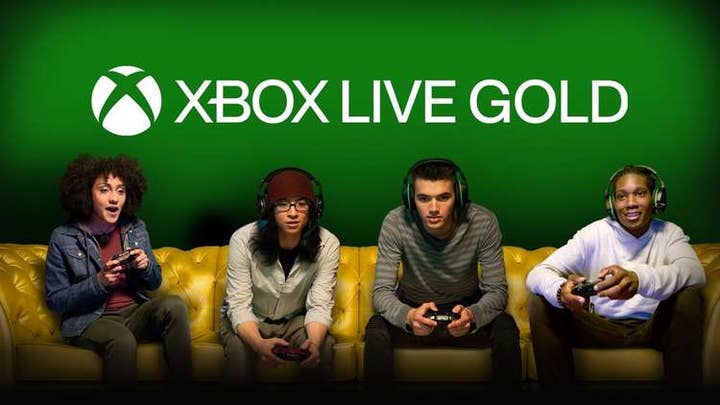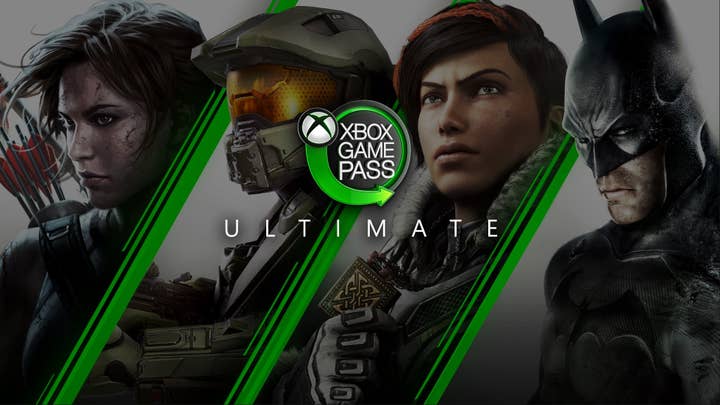How can Xbox encourage consumers to 'swim upstream'? | Opinion
Microsoft's new consoles are off to a strong start - but converting its standard Live users to higher-revenue Game Pass subscribers remains a thorny challenge
This week's Microsoft financials told a fantastically positive story overall, and the Xbox-related news was no exception.
The company recorded over $5 billion in quarterly revenue from video games for the first time in its history, and the Xbox Series X|S consoles have delivered the strongest launch for a Microsoft console yet, despite continuing supply-side constraints.
Combined with the growing strength of the company's cloud services -- which have made a focus on games into a point of differentiation from Amazon and Google's rival cloud offerings -- this is overall a great start to the new generation for the company, and feels like a strong validation of its comeback strategy after the failure of the Xbox One.
Nestled within that story, though, there's a subplot which -- while by no means negative in itself -- highlights the true challenge Microsoft's games division faces in the coming years. On its conference call after the results announcement, Microsoft revealed that it now has over 100 million monthly active Xbox Live users; while its Game Pass service has grown to 18 million subscribers.
Whatever Microsoft does with its subscription pricing and offerings this year will be crucial to the success of Xbox, because so very much of its success as a whole is pinned on Game Pass
That's solid growth for Game Pass, which was at 15 million a quarter previously -- but the gap between those two numbers, 100 million Live users and 18 million Game Pass subscribers, is the challenge Microsoft now finds itself sizing up. We saw it make a false start at tackling that gap earlier in the week, with an abortive (and thankfully quickly rescinded) effort to increase the subscription fees for Xbox Live Gold -- an increase which would have pushed the cost of the standard online play service much closer to the Xbox Live Ultimate tier which includes Game Pass, thus effectively making the upgrade into a no-brainer for a lot more consumers.
That was the thinking, at least; unfortunately, this plan seemed to be very much focused on step two ("Gold subscribers will be much more tempted to upgrade to Ultimate") to the detriment of having thought very much at all about step one ("double the price of Gold just as Xbox is finally starting to get back on its feet after a generation of being battered into the dust by Sony's offerings").
It's not a great look for Microsoft that this plan ever got off the drawing board and into the public realm, though it's very much to the firm's credit that it was able to react quickly enough to make a U-turn and apology before consumers really had a chance to build up a head of steam over the change.
The fact that this was even under consideration points to just how important it is for Microsoft to push users towards Xbox Live Ultimate, Game Pass, and the higher APRU services it's bundling together as the beating heart of its games offering.

Much has been made of how the Series X|S consoles are meant to do away with the notion of the console generation, turning Xbox instead into a platform that evolves over time and encompasses non-console hardware like PCs or mobile devices. The Xbox Live Ultimate services, especially Game Pass, are in a very real sense Microsoft's "next-gen offering," even more so than the new Xbox hardware itself, no matter how impressive it may be.
If the Xbox Series X|S sold tremendously well but hardly any of those sales converted into long-term Xbox Live Ultimate memberships, I suspect Microsoft would -- internally at least -- come to view the whole venture as something of a failure. Converting standard Live members over to Ultimate members is, therefore, a major priority for the Xbox team. To that end, one wonders if Microsoft hasn't boxed itself in somewhat with its existing pricing structures -- and indeed, that's a problem that goes well beyond Microsoft, as a lot of other companies (in the games space and beyond) are also thinking hard about the sustainability and long-term prospects of their subscription pricing systems.
The Xbox Live Ultimate services, especially Game Pass, are in a very real sense Microsoft's 'next-gen offering,' even more so than the new Xbox hardware itself
One major problem -- which was rocket fuel for the instant backlash that Microsoft managed to nip in the bud this week -- is that the market for these services is very, very price-sensitive at the moment. This is partially because of the economic squeeze many households are feeling due to COVID, but it's not just a temporary affair; there's a more general, long-term squeeze on the economic situation of younger generations in many countries. This has actually been good for video games in some regards -- they're a cost-effective form of leisure expenditure -- but it's generally not great to see your target audience having less disposable income, and it's become a major headache as monthly subscription costs have started seriously racking up for a lot of consumers.
A music subscription, a handful of streaming video subscriptions, and now various gaming service subscriptions -- let alone mobile data and internet costs, and the fact that a lot of software is also now on a subscription model, too -- this all adds up to a pretty significant chunk of people's disposable income disappearing in fixed costs each month. That ensures that people will become highly sensitised to increases in those subscription fees -- where once upon a time it might have been easy to pass off a couple of dollars of increase (wagering that consumers wouldn't do the arithmetic to realise how many dollars that turns into over a few years), those month-to-month numbers are now scrutinised much more closely by consumers keenly aware of the rise in their fixed monthly discretionary outgoings.
It's for this reason that the costs of services like Netflix and Disney+ only creep up gradually; these companies take the "boiling a frog" approach, increasing the temperature only a little bit at a time in the hope that consumers won't revolt in large numbers. In Microsoft's case, almost doubling the annual subscription price for Live (and making it twice as expensive as Sony's broadly comparable PlayStation Plus offering to boot) was far too much of an overnight jump in cost, and thus doomed to fail from the outset, no matter how much value is offered by Game Pass on the next tier up of the service.

Something Microsoft might find interesting to watch, as it retreats to figure out how best to approach this thorny problem -- a problem that's only going to be tougher when the inevitable moment arrives when Microsoft also needs to apply a price hike to Game Pass itself -- is how Apple fares with its new subscription initiative, Apple One.
On paper, Apple One is a weirdly unappealing offering from a company that's usually pretty good at manufacturing appealing products. It bundles some things people generally like and want (like Apple Music) with some things that are generally seen, though not as bad or terrible per se, certainly as also-rans in their field at best (Apple TV Plus, Apple Arcade).
In practice, though, Apple One is likely to do better than the sum of its parts would suggest, precisely because it's actually an effort to do something Microsoft also clearly believes in to some extent -- namely giving up some revenue from high-spenders (Apple One is notably cheaper if you're someone who already subscribes to some of those services) in return for increasing the average revenue from a wider set of users (it's only a few dollars more for a Music subscriber to get access to all this other stuff, which feels like good value even if you'd never seriously considered subscribing to the other services before).
Game Pass is, at its core, already an application of that philosophy to the games industry (people who buy loads of games will spend less thanks to Game Pass; people who buy few games will spend more). As such, an effective strategy for improving its uptake and reducing resistance to price increases would be some form of bundling deal, perhaps even one which goes beyond video games themselves -- just as Game Pass now incorporates EA Access, why couldn't an Xbox Live Ultimate subscription also incorporate something like Spotify or Comixology (admittedly, the latter is tough due to being Amazon-owned, but not beyond the realms of possibility) -- services that many users subscribe to (so bundling them would be cost-effective) and which many, many others would likely be interested in getting access to (so bundling them increases uptake and perceived value).
Whatever Microsoft does with its subscription pricing and offerings in the coming year is going to be crucial to the success of Xbox, because so very much of the success of the platform as a whole is pinned on Game Pass and the rest of the services it's offering as part of Ultimate. Hopefully, the next time we get a glimpse of the company's strategy for encouraging its users to swim upstream and engage with the more premium subscription options, it'll be something rather a lot smarter than "let's double the price of Live overnight."

